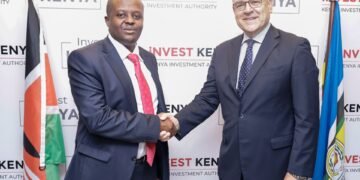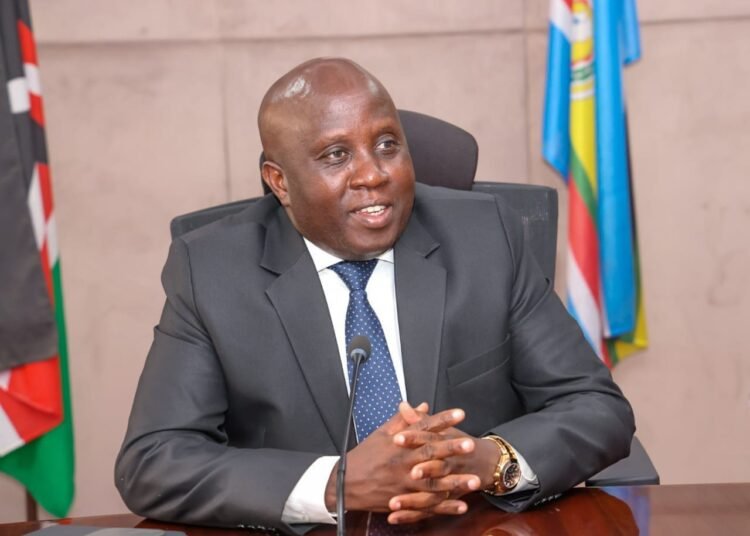Kenya is set to become the global frontrunner in equipping its civil servants with cutting-edge skills in artificial intelligence (AI) and digital governance, thanks to a new Massive Open Online Course (MOOC) developed in collaboration with UNESCO, the University of Oxford, and the Kenya School of Government (KSG).
In a statement , Eng. John Kipchumba Tanui, Principal Secretary for the State Department of ICT and Digital Economy, announced that the course will empower public servants to drive ethical digital transformation and deliver citizen-centered services. “Kenya is proud to pioneer this Massive Open Online Course on AI and Digital Transformation in Government,” Tanui said. “Delivered through the Kenya School of Government, the course will equip civil servants with the essential competencies to lead digital transformation and innovation ethically.”
The initiative is a flagship component of the DigiKen – Digital Platforms Kenya programme, a 36-month effort funded by the UN Joint SDG Fund and led by UNESCO in partnership with the United Nations Capital Development Fund (UNCDF), UNEP, and UN Women. The program operates under the oversight of the UN Resident Coordinator in Kenya and the Ministry of Information, Communication and the Digital Economy (MOICDE).
Tanui highlighted how the MOOC aligns with Kenya’s ambitious Digital Masterplan 2022–2032, which aims to digitize 80% of government services, expand the national fiber optic network by 100,000 kilometers, and provide nationwide public Wi-Fi access. “Achieving these transformative investments requires more than infrastructure,” he emphasized. “It demands skilled leaders capable of governing digital platforms, safeguarding citizen personal data, navigating AI, and upholding fundamental human rights to strengthen public trust in our institutions.”
ALSO READ: WESTERN CAPE HOSTS SUMMIT TO BOOST CLIMATE RESILIENCE
Based on UNESCO’s AI and Digital Transformation Competency Framework for Civil Servants, the self-paced course can be completed in an average of six weeks. It covers key topics including the foundations of AI, data as a public asset, human rights and ethics, governance of digital systems, inclusive service design, and digital leadership. Participants who finish will receive a prestigious certificate from the University of Oxford, UNESCO, and the Kenya School of Government, boosting their professional credentials.
The inaugural cohort for Kenyan participants is scheduled to launch in October 2025, ahead of the global rollout on November 10, 2025. By 2027, the program aims to train over 20,000 public servants nationwide through the UN Joint SDG Fund initiative.
“This MOOC fosters visionary and ethical leadership, aligned with global best practices in digital governance,” Tanui noted. “These capacities form the twin pillars of Kenya’s digital transformation strategy: digital competence and ethical leadership.”
In a call to action, Tanui urged eligible officials from ministries, departments, agencies, county governments, commissions, and other public institutions to enroll via the Kenya School of Government platform. “By applying these critical governance skills, we will strengthen a public service that advances digital transformation with integrity, transparency, and accountability—securing a future for Kenya that is prosperous, inclusive, ethical, and built on trust.”






























































